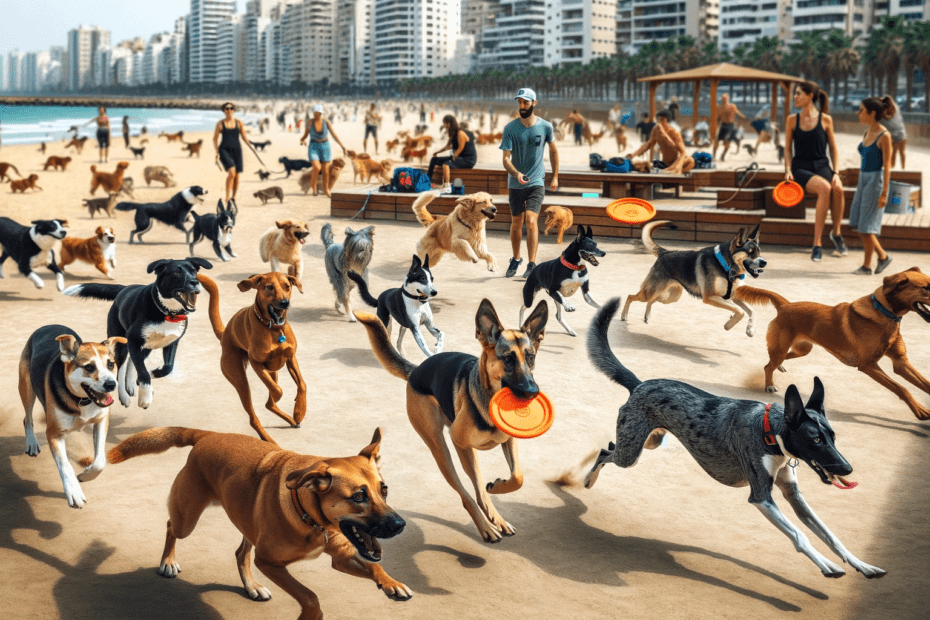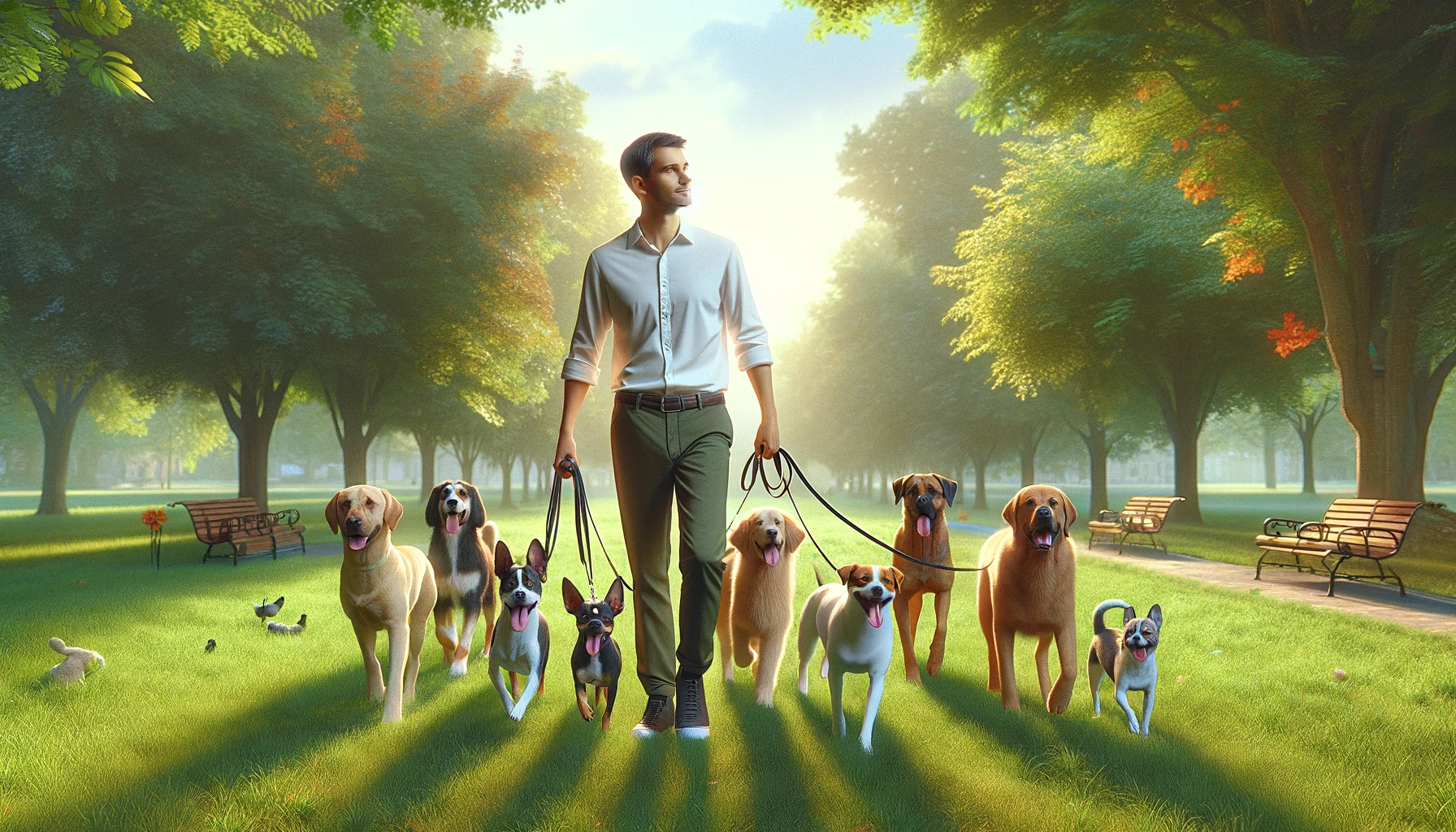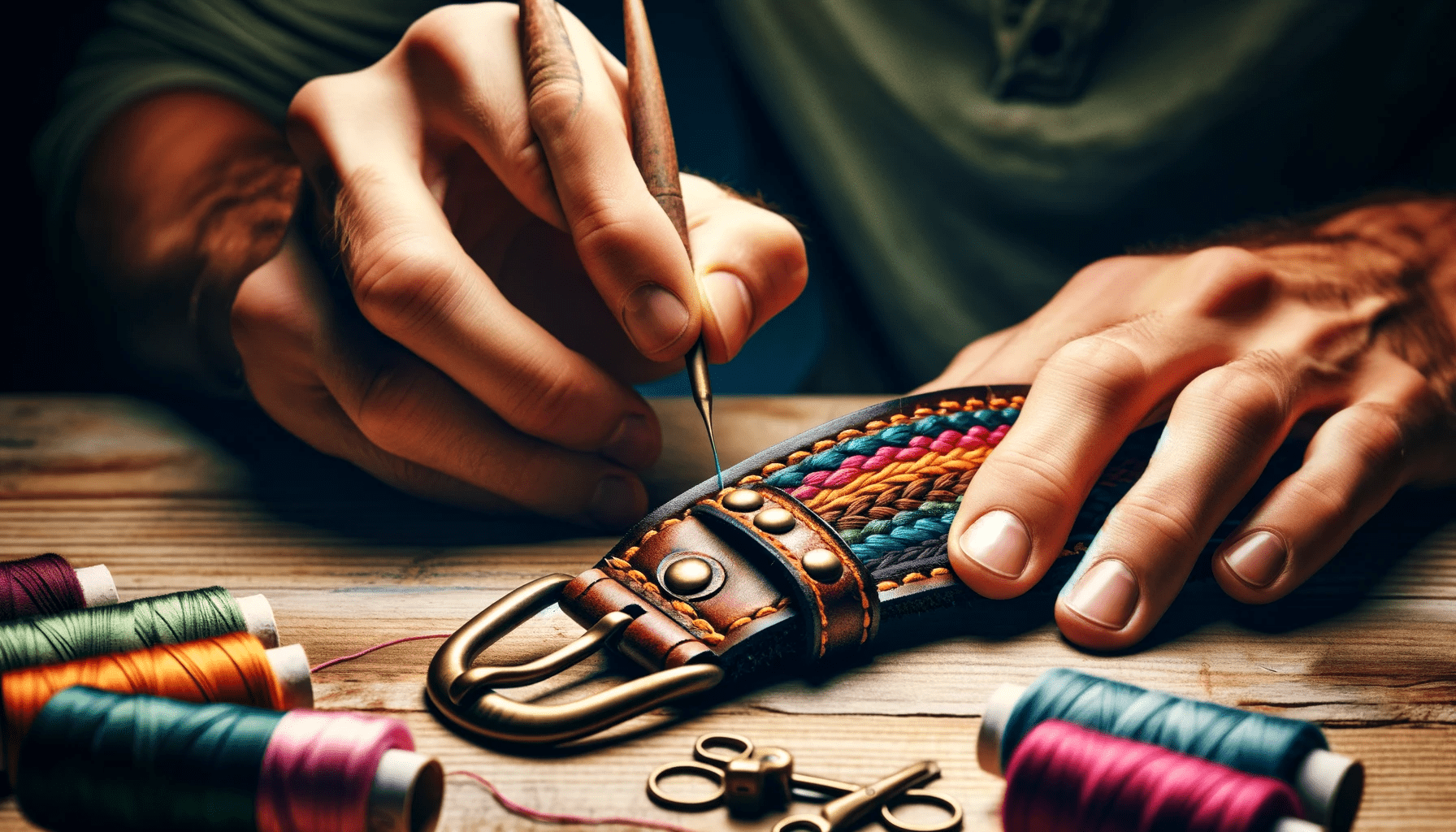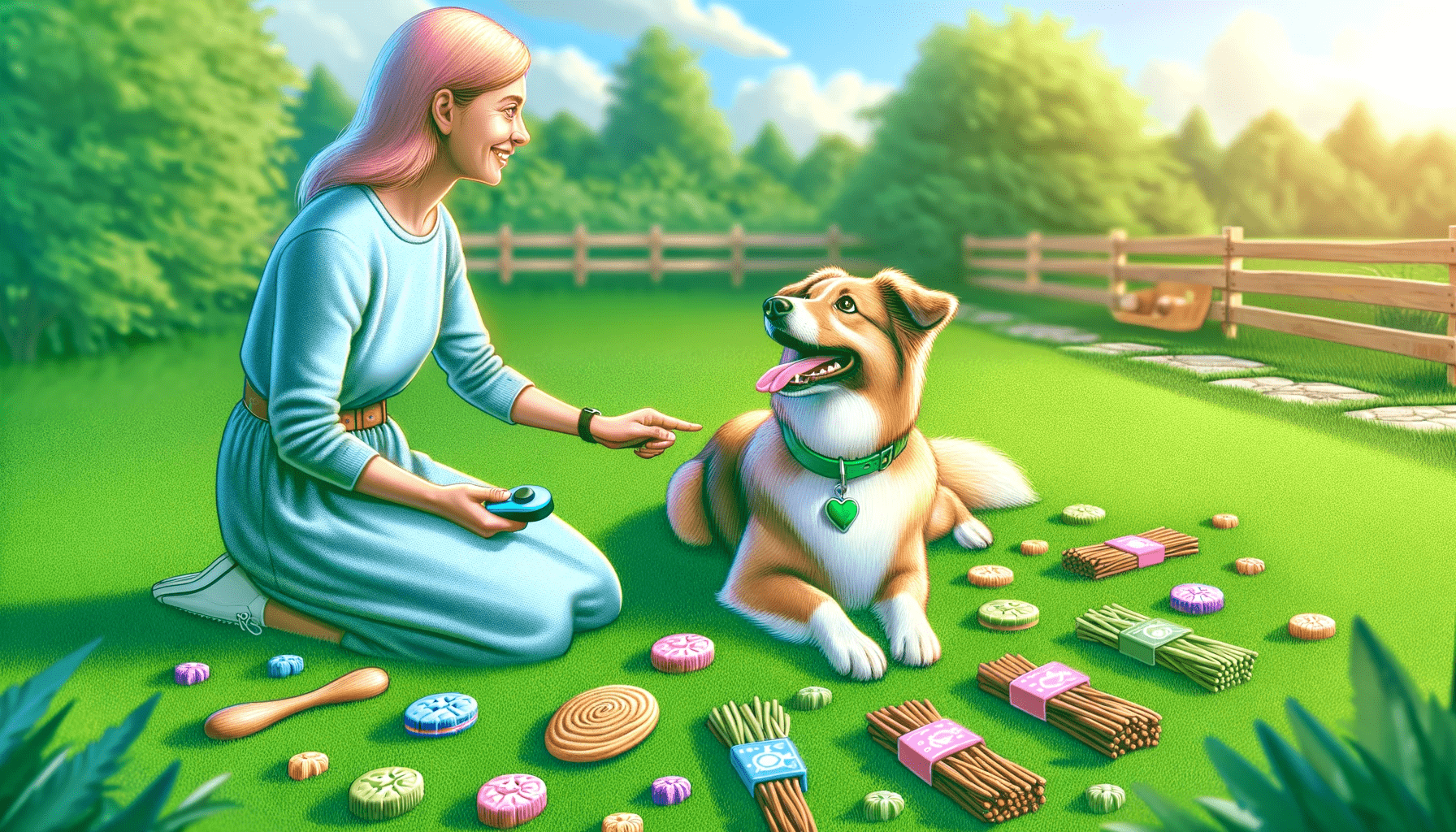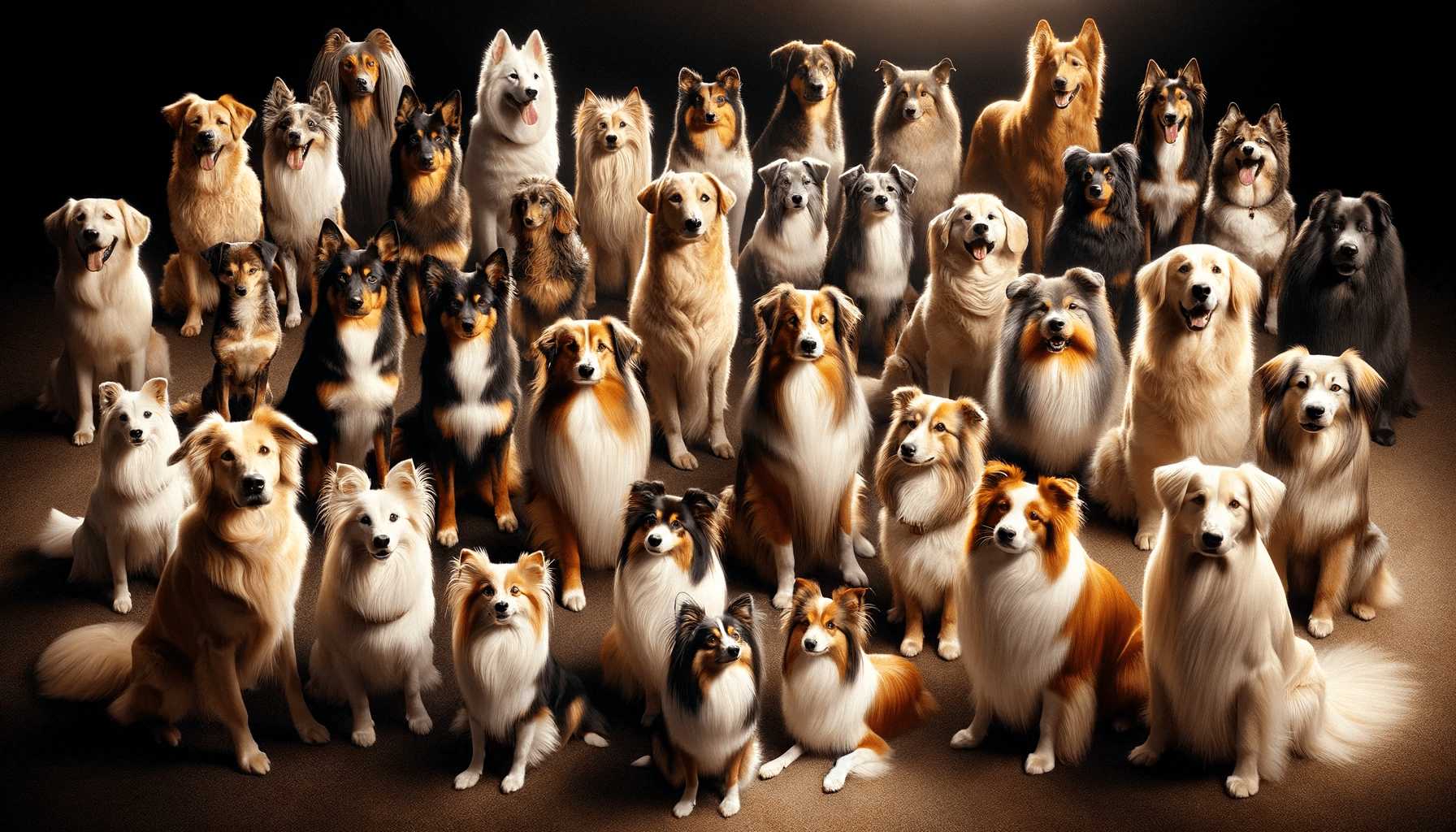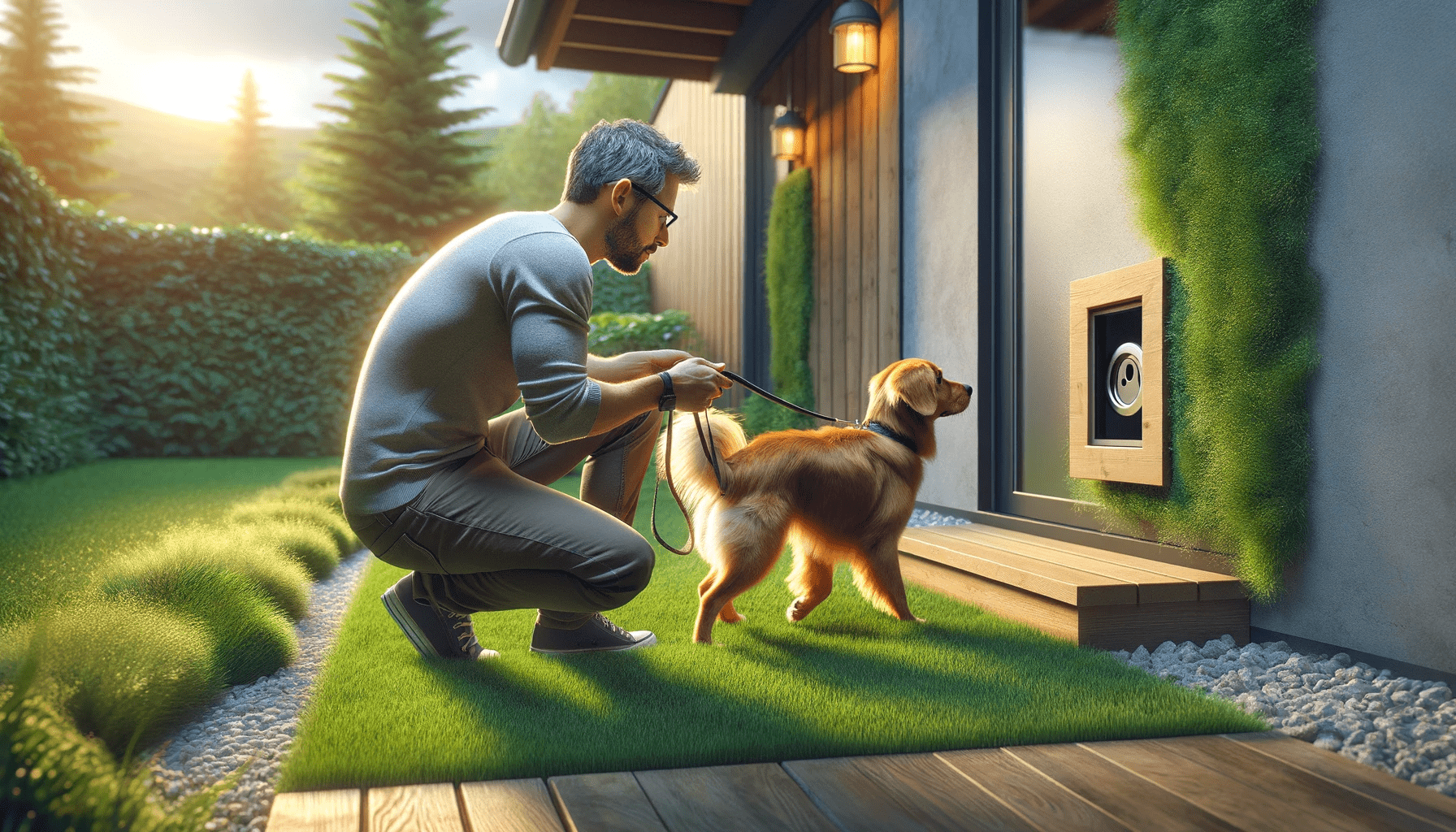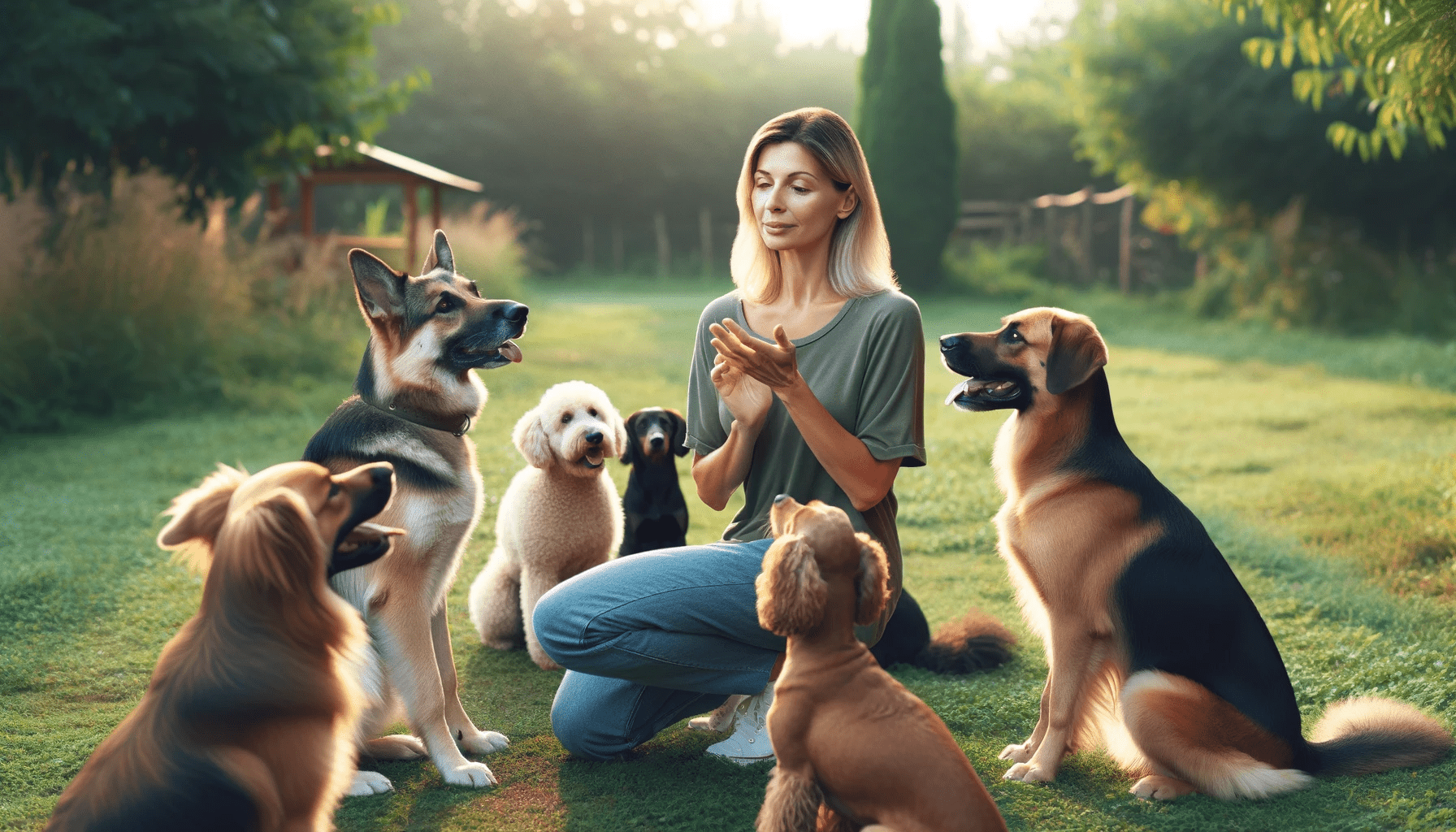Are you struggling to socialize your rescue dog? Don't worry, we've got you covered!
In this article, we'll share with you the 6 best techniques for rescue dog socialization.
- Early exposure: It's important to expose your rescue dog to various social situations from an early age. This helps them become familiar and comfortable with different environments, people, and animals.
- Positive reinforcement: Use positive reinforcement techniques such as treats, praise, and rewards to encourage your dog's social behavior. This will help them associate social interactions with positive experiences.
- Controlled social settings: Start socializing your rescue dog in controlled environments, such as small gatherings or playdates with other well-behaved dogs. This allows you to monitor and manage the interactions to ensure a positive experience for your dog.
- Gradual introductions: Introduce your dog to new people and animals gradually. Start with brief and supervised interactions, gradually increasing the duration and level of socialization as your dog becomes more comfortable.
- Enrichment activities: Engage your rescue dog in enriching activities that promote socialization, such as group training classes or agility courses. These activities provide opportunities for your dog to interact with other dogs and people in a structured and positive environment.
- Professional guidance: If you're struggling with socializing your rescue dog, don't hesitate to seek professional guidance from a dog trainer or behaviorist. They can provide you with personalized advice and techniques to help your dog overcome their socialization challenges.
By implementing these techniques, you'll be able to help your furry friend become more confident and comfortable in social situations.
So get ready to embark on an exciting journey of bonding and growth with your rescue dog!
Key Takeaways
- Early exposure and positive reinforcement are crucial for rescue dog socialization.
- Controlled social settings and gradual introductions can help ease a rescue dog's transition.
- Enrichment activities and interactive toys can provide mental stimulation and promote socialization.
- Seeking professional guidance, specialized training methods, and ongoing support are essential for successful rescue dog socialization.
Early Exposure
In the early stages of socializing your rescue dog, it's crucial to provide them with a wide range of positive experiences. This includes enrolling them in puppy classes and arranging playdates with other well-behaved dogs.
Puppy classes are a great way to introduce your rescue dog to new experiences in a controlled environment. These classes not only teach basic obedience commands, but also provide opportunities for your dog to interact with other puppies. This interaction helps them develop important social skills and learn appropriate play behavior.
Playdates are another important aspect of socializing your rescue dog. By arranging playdates with other friendly and well-behaved dogs, you can expose your dog to different breeds, sizes, and temperaments. This helps them become more comfortable and confident around other dogs, reducing the risk of fear or aggression issues in the future.
During these early exposure experiences, it's important to monitor your dog's behavior and intervene if any negative interactions occur. You want to ensure that all interactions are positive and enjoyable for your dog, as this will help shape their behavior and attitude towards other dogs in the long run.
Positive Reinforcement
To effectively socialize your rescue dog, utilize positive reinforcement techniques to encourage desirable behaviors and reinforce the positive experiences they've with other dogs. This approach, known as reward-based training, focuses on behavior modification through the use of rewards such as treats, praise, and playtime.
By applying positive reinforcement consistently, you can help your rescue dog develop the necessary skills and confidence to interact with other dogs in a positive and controlled manner. Here are four key reasons why positive reinforcement is an effective tool for rescue dog socialization:
- Builds trust: Positive reinforcement creates a strong bond of trust between you and your rescue dog. When your dog associates good behavior with rewards, they learn to trust and rely on you for guidance.
- Encourages desired behavior: Rather than punishing unwanted behavior, positive reinforcement focuses on rewarding desired behaviors. This approach motivates your rescue dog to repeat those behaviors in order to receive the reward.
- Creates positive experiences: Positive reinforcement allows you to create positive experiences for your rescue dog during socialization. By rewarding your dog for calm and friendly interactions with other dogs, you can help them associate those experiences with positive emotions.
- Enhances confidence: Reward-based training boosts your rescue dog's confidence by reinforcing their successes. As they're consistently rewarded for appropriate behavior, they become more confident in their ability to navigate social interactions.
Controlled Social Settings
When introducing your rescue dog to other dogs, it's essential to create controlled social settings. This ensures that interactions are safe and positive for all involved.
One way to do this is by following dog park etiquette. Before entering the park, make sure your dog is up to date on vaccinations and is properly trained to respond to commands. Once inside, keep a close eye on your dog's behavior and intervene if necessary. It's important to monitor their interactions and step in if any signs of aggression or discomfort arise.
Additionally, consider coordinating playdates with other dog owners. This allows for a more controlled environment where you can introduce your rescue dog to other dogs one-on-one. Start with shorter, supervised play sessions and gradually increase the duration as your dog becomes more comfortable. Pay attention to their body language and provide positive reinforcement when they exhibit appropriate behavior.
Gradual Introductions
Take your time and carefully introduce your rescue dog to new people and animals. Gradual introductions are crucial for building trust and ensuring positive interactions for your dog. By following these four steps, you can help your rescue dog adjust and feel comfortable in new social situations:
- Start with familiar faces: Begin by introducing your dog to close family members or friends who are calm and understanding. This will help your dog build confidence and trust in a comfortable environment.
- Controlled environment: Choose a quiet and neutral space for introductions. Avoid overwhelming your dog with a crowded or noisy environment. This will allow your dog to focus on the new animal or person without feeling stressed or anxious.
- Supervise interactions: Always closely supervise the interactions between your dog and new animals or people. This will ensure the safety of everyone involved and allow you to intervene if necessary.
- Gradual exposure: Gradually increase the level of exposure to new animals or people over time. Start with short and positive interactions, and slowly extend the duration as your dog becomes more comfortable.
Enrichment Activities
Ready to take your rescue dog's socialization to the next level? Enrichment activities are a great way to engage their minds and provide them with mental and physical stimulation.
Interactive toy games, like puzzle toys or treat-dispensing toys, can keep them entertained and challenge their problem-solving skills.
Outdoor sensory exploration, such as sniffing walks or nature hikes, allows them to explore their surroundings and engage their senses.
Get ready to watch your furry friend thrive as you incorporate these enriching activities into their socialization journey!
Interactive Toy Games
Start by introducing your rescue dog to interactive toy games to provide mental stimulation and enrichment. These games not only keep your pup entertained but also help them develop problem-solving skills and strengthen the bond between you and your furry friend.
Here are four interactive toy games that are sure to grab your dog's attention:
- Treat-dispensing toys: These toys challenge your dog to figure out how to get the treats out, keeping their mind engaged and rewarding their efforts with tasty treats.
- Puzzle toys: These toys require your dog to solve a puzzle or manipulate different parts to access a hidden treat. They provide mental stimulation and encourage problem-solving abilities.
- Squeaky toys: These interactive toys make a noise when squeezed, captivating your dog's attention and satisfying their natural instinct to chase and catch prey.
- Tug-of-war toys: These toys promote bonding exercises between you and your dog as you engage in a friendly game of tug-of-war, helping to build trust and strengthen your relationship.
Introduce these interactive toy games into your rescue dog's routine and watch them thrive mentally and emotionally.
Outdoor Sensory Exploration
Engage your rescue dog in outdoor sensory exploration to provide enrichment activities that stimulate their senses and promote their overall well-being. Nature walks are a fantastic way to expose your dog to new sights, sounds, and smells. During these walks, encourage your dog to use their senses by allowing them to sniff and explore their surroundings. This sensory training helps them become more confident and adaptable to different environments.
Let them pause and investigate interesting scents or textures along the way. You can also incorporate sensory games, such as hiding treats or toys for them to find, to make the experience even more engaging. Outdoor sensory exploration not only provides mental stimulation for your rescue dog, but it also strengthens the bond between you and your furry friend.
Professional Guidance
Seek out the expertise of a certified dog trainer for professional guidance in socializing your rescue dog. A professional can provide you with valuable insights and techniques to help your dog adapt to their new environment and interact with other dogs and people. Here are four reasons why seeking professional guidance is crucial for successful socialization:
- Specialized Training Methods:
Certified dog trainers have the knowledge and experience to employ effective training methods tailored to your rescue dog's specific needs. They can teach you how to use positive reinforcement techniques to reinforce good behavior and discourage unwanted behaviors.
- Behavior Modification:
If your rescue dog has any behavioral issues, a certified trainer can help with behavior modification techniques. They can address problems such as fear, aggression, or separation anxiety, and guide you on how to manage and correct these behaviors.
- Individualized Approach:
Every rescue dog is unique, and what works for one may not work for another. A professional trainer can assess your dog's temperament and create a personalized socialization plan that takes into account their background, personality, and any special requirements they may have.
- Ongoing Support:
Socialization isn't a one-time event; it's an ongoing process. A certified dog trainer can provide you with ongoing support and guidance as you navigate the challenges of socializing your rescue dog. They can answer your questions, offer advice, and help you make adjustments to your training plan as needed.
Frequently Asked Questions
How Long Does It Usually Take for a Rescue Dog to Fully Adjust to Their New Environment and Become Socialized?
It usually takes rescue dogs varying amounts of time to fully adjust and become socialized in their new environment. Factors such as past experiences and temperament play a role. Training and patience are key in helping them overcome their past and build trust.
Are There Any Specific Breeds or Types of Rescue Dogs That May Require Different Socialization Techniques?
When it comes to specific breed differences in rescue dogs, it's important to tailor your socialization techniques. Some breeds may have unique needs or behaviors that require extra attention. Effective socialization is key to helping them thrive in their new environment.
What Are Some Common Challenges or Obstacles That May Arise During the Socialization Process for Rescue Dogs?
When socializing rescue dogs, you may encounter challenges and obstacles. However, with proper techniques and patience, you can overcome them. Tips for successful rescue dog socialization include gradual exposure, positive reinforcement, and seeking professional guidance when needed.
Can Rescue Dogs Ever Fully Overcome Their Fear or Anxiety Towards Certain People or Situations Through Socialization?
You can help your rescue dog overcome fear or anxiety through socialization techniques. By gradually exposing them to new people and situations, they can learn to feel more comfortable and confident.
Are There Any Age Limitations or Restrictions When It Comes to Socializing Rescue Dogs?
When it comes to socializing rescue dogs, age limitations and restrictions may exist. However, with the right techniques, you can help these dogs overcome their fears and anxieties, regardless of their age.
Conclusion
In conclusion, socializing a rescue dog is crucial for their overall well-being and successful integration into a new home. By providing early exposure, positive reinforcement, and controlled social settings, you can help your furry friend build confidence and trust.
Gradual introductions and enrichment activities will further enhance their social skills and mental stimulation. Remember, seeking professional guidance can ensure that you're on the right track towards a happy and well-adjusted rescue dog.
So, start implementing these techniques and watch your pup thrive!
